There is no need to feel alone if you have work depression. There are a number of feelings that you may feel if you’re experiencing depressive symptoms at work, including sadness, anxiety, loss of motivation, difficulty concentrating, unexplained crying fits and boredom.
An estimated 17 million Americans experience depression annually.
A survey by the American Psychological Association reveals that from 2019 to 2020, the number of people seeking depression treatment increased significantly.
People participated in the survey’s depression screen at a 62 percent higher rate than last year – and 8 in 10 of those responded with symptoms of moderate to severe depression.
The Bureau of Labor Statistics reports that full-time employees spend an average of 8.5 hours per day at work during the week and 5.5 hours on weekends and holidays, which suggests that a significant number of them will complain of symptoms of depression while on the job.
The purpose of this article is to help you understand why work can trigger depressive symptoms, how to recognize the signs, where to seek help, and how to feel better.
Read: Biology of Depression
What is work depression?
It is true that a job cannot cause depression. However, the environment may exacerbate symptoms for people who already suffer from depression.
Rashmi Parmar, MD, a psychiatrist at Community Psychiatry, said that any job or workplace can contribute to depression depending on the level of stress and support available there.
Several negative health consequences can be caused by a negative working environment, according to the World Health Organization (WHO):
- Physical and mental health issues
- Absenteeism
- Decreased productivity
- Substance abuse
Depression is listed as one of the top three workplace issues by Mental Health America.
It’s important to learn about the condition and to detect it early.
Depression can manifest itself in a wide variety of thoughts, feelings, and behaviors, and a number of work and non-work-related factors may play into the development of workplace depression.
Read: How Optical Illusions Trick Our Brains
What are the signs of work depression?
Work-related depressions display similar signs to general depressions. Still, some may be more specifically workplace-related.
According to Parmar, depression will affect your performance at work and at home.
There are a few signs that work depression may cause:
- Anxiety level increases when you are dealing with stressful situations or thinking about work while away from work
- Generally feeling bored and complacent
- Boredom can sometimes be the outcome of having low energy and a lack of motivation to do things
- Feeling depressed or sad for a prolonged period of time
- Lack of interest in work-related tasks, especially duties you previously considered fulfilling and interesting
- An overwhelming sense of guilt, worthlessness, or hopelessness
- Having difficulty retaining or remembering things, in particular new information, and having difficulty paying attention to work tasks
- Completing daily tasks incorrectly
- Changes in appetite or weight
- Muscle aches and pains
- An increase in absences
- Difficulty making decisions
- Impaired ability to cope with frustration
- Apparently unrelated crying spells or tears at work
- Sleeping problems or excessive sleep (such as taking naps during regular working hours)
- Substance abuse or self-medication
Work depression may not be visible to coworkers if you are good at masking or internalizing it. However, they may notice certain symptoms.
Below are a few symptoms of work depression you should be aware of according to Parmar:
- Social withdrawal or isolation
- Changes in appearance or poor hygiene
- Being late to work, missing meetings, or being absent from work
- Time management issues, missed deadlines, subpar performance in tasks, and difficulties making decisions cause procrastination
- Disinterest, indifference and forgetfulness
- Feeling tired for most or part of the day (such as taking afternoon naps at work)
- Feeling overwhelmed, irritable, angry, or becoming emotional during a conversation (may start crying suddenly or cry out of nowhere)
- Not feeling confident when facing challenges
Read: How to Stop Overthinking
Why you might be depressed at work
It is possible to suffer from increasing signs of depression at work for a variety of reasons. Regardless of the fact that no two people or workplace experiences are alike, a few common themes appear to emerge when trying to pinpoint the causes or triggers of workplace depression.
Following are a few situations that may affect workers’ well-being:
- Feeling helpless in the face of workplace problems
- Fear of losing your job
- Working under toxic conditions
- Underpaid or overworked
- Being harassed or discriminated at work
- Unusual hours worked
- Poor work-life balance
- Working in an environment that does not align with your values
- Taking on tasks that do not advance your career
- Working under hazardous conditions
Work stress vs. work depression
It’s not uncommon for employees to be stressed on the job, but depression should not be ignored. There is a difference between the two.
Work stress
- Work stress that disappears when the stressor goes away
- Periods of anxiety and irritability
- Headaches or muscle tension
Work depression
- An increase in sadness and crying
- Persistent feelings of anxiety
- Difficulty concentrating and focusing
- Boredom and unhappiness at work
Leela R. Magavi, MD, a psychiatrist with Community Psychiatry, explains that she has a lot of clients who experience adverse consequences from doing work they don’t enjoy.
It is possible to systematically complete daily tasks in a mindless manner, which can leave one feeling disconnected and demoralized, contributing to anxiety and depression.
It may be difficult for others to consume meals or stay hydrated throughout the day, which can contribute to fatigue and inattentiveness.
Read: What is Hypnotherapy
Do remote jobs cause depression?
There are many drawbacks to working remotely. It is easy for the line between your professional and personal lives to disappear and significantly disrupt your daily routine.
It’s not easy to establish and maintain a structured routine at home.
If there is no routine, boredom can gradually creep in, giving way to depression.
People working from home experience loneliness and isolation without the social environment they would find at work.
Our friends and colleagues are relying more and more on chats, messaging, and phone calls to stay in touch, which adds to our already increased screen time,” she said.
Furthermore, Parmar said it can be challenging to track time when at home since people might work more hours than usual.
“When all these factors are combined, it is normal to feel overwhelmed and depressed,” she explained.
According to Magavi, continued remote work might present a number of emotional, physical, and financial challenges to employees.
The pandemic and associated stressors significantly disadvantage low-income communities due to lack of resources or access to reliable Wi-Fi, as well as increasing the risk of domestic violence, regardless of income.
Some individuals may feel like nothing is going to happen in the future, or they may feel lonely as they no longer have a way of normalizing their feelings of burnout with their colleagues.
Read: Shared Psychotic Disorder
Do you know how to deal with depression at work?
If you’re feeling depressed at work, you’ll find it difficult to manage symptoms. However, you can do some of these things to help:
- Give yourself a 10-minute break
- Enjoy some fresh air during lunchtime
- While taking a break, go for a quick walk – even if you’re inside, exercise is beneficial
- Take some time for yourself
- Spend some time in mindfulness
- Breathe deeply throughout the day
- Let go of one small thing that reduces your stress level during the day
- Watch a funny video
What are common risk factors for depression at work?
The following factors contribute to depression at work:
- Dismissive managers
- Effort-reward imbalance
- Politics at work
- Workplace gossip
- Bullying at work
- Demanding jobs
- Limited decision-making power
- Few social supports at work
Among the additional risk factors mentioned by Parmar are:
- Unfair expectations
- Too much workload
- Mismanaged responsibilities at work
Moreover, a lack of work-life balance might also contribute to burnout, as can a poorly matched job.
Additionally, working long shifts of over 10 and 12 hours or working during an odd hour of the day, which disrupts routines and sleep patterns, poses health risks.
According to a review conducted in 2019, shift workers, especially females, have an increased risk of poor mental health, particularly depression symptoms.
Read: High Functioning Anxiety
How is depression related to work treated?
Talk to your supervisor or boss as soon as you notice a connection between your depressive symptoms and your work environment – if you feel supported by them.
Changing assignments or locations within an organization or office can sometimes alleviate symptoms.
If you are employed by a company that has an employee assistance program, you can inquire about mental health–related services that are provided in the workplace.
Depression is usually treated using a combination of psychotherapy, medication and lifestyle interventions. You can find professional help in person or online.
Moreover, Parmar pointed out that employers and coworkers can play a significant role in the identification of individuals at risk.
Mental health disorders at work should be brought to the forefront in a way that minimizes the stigma associated with them so that employees can seek help freely and without discrimination when they need it, she said.
The results of a study conducted in 2014 found that having universally accessible mental health interventions at the workplace – specifically cognitive-behavioral health-based programs – could reduce depression symptoms among employees.
It is important to note that managers, supervisors, and employees can be trained to initiate these conversations with people who need help and to assist them in their search for appropriate care.
Read: Parental Burnout
To summarize
Anxiety, crying, boredom, and lack of interest are all signs of depression at work. Recognizing these signs is the first step to getting help.
Contact your supervisor or human resources department if you are concerned about work depression. They will help you find a counselor through an employee assistance program.
Therapists and psychologists are also available for treatment. Do not hesitate to reach out to a doctor or mental health professional if you are not ready to reach out at work.
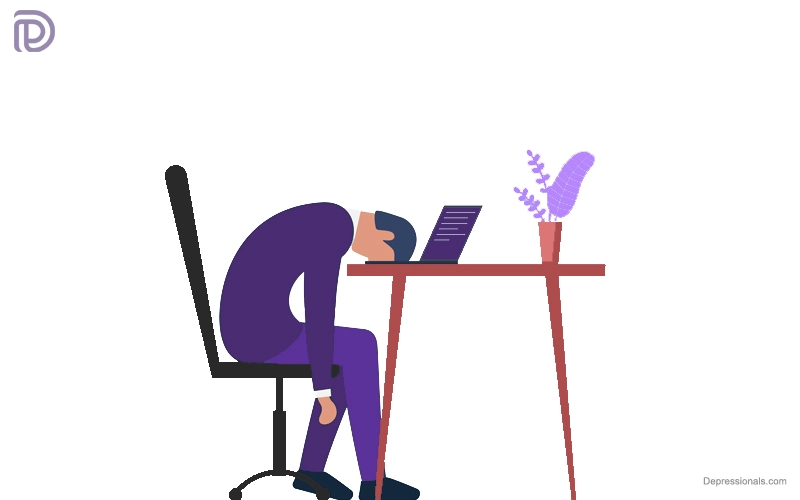
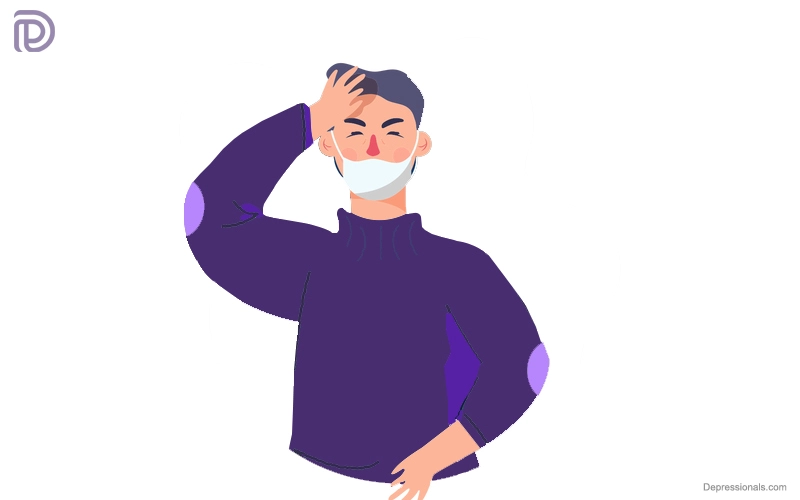
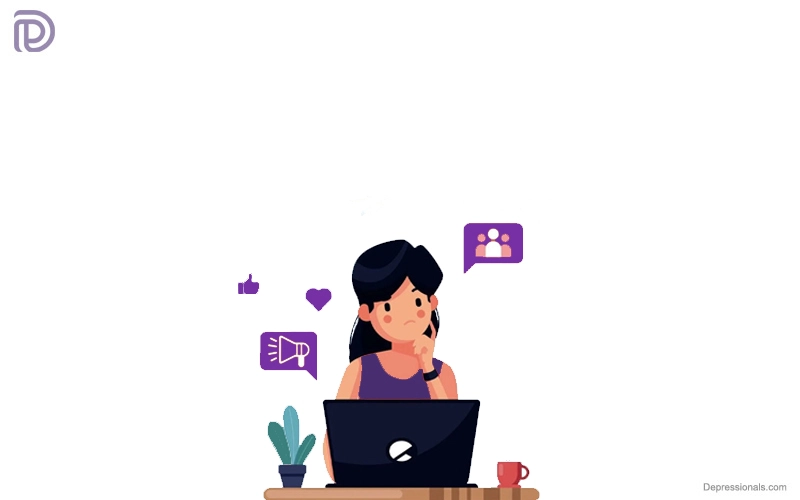
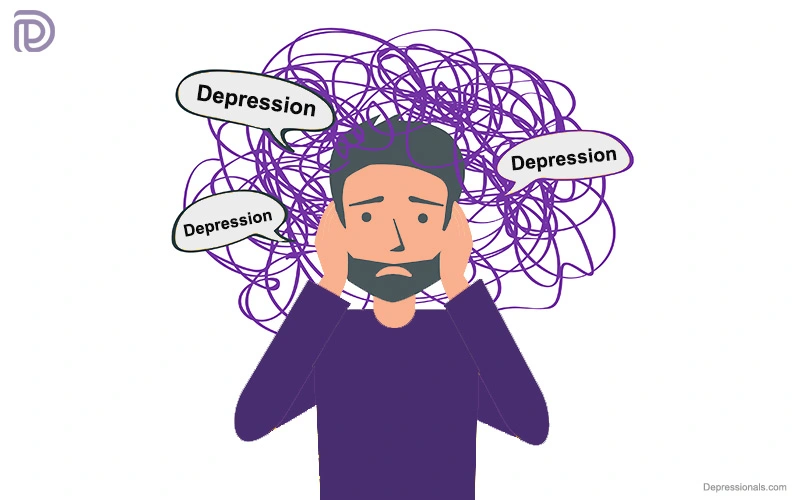
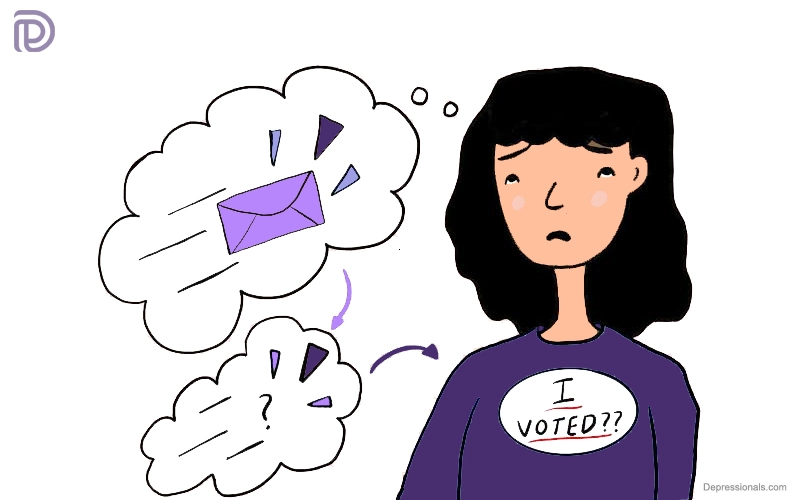

I’m not sure why but this web site is loading incredibly slow for me. Is anyone else having this problem or is it a problem on my end? I’ll check back later and see if the problem still exists.